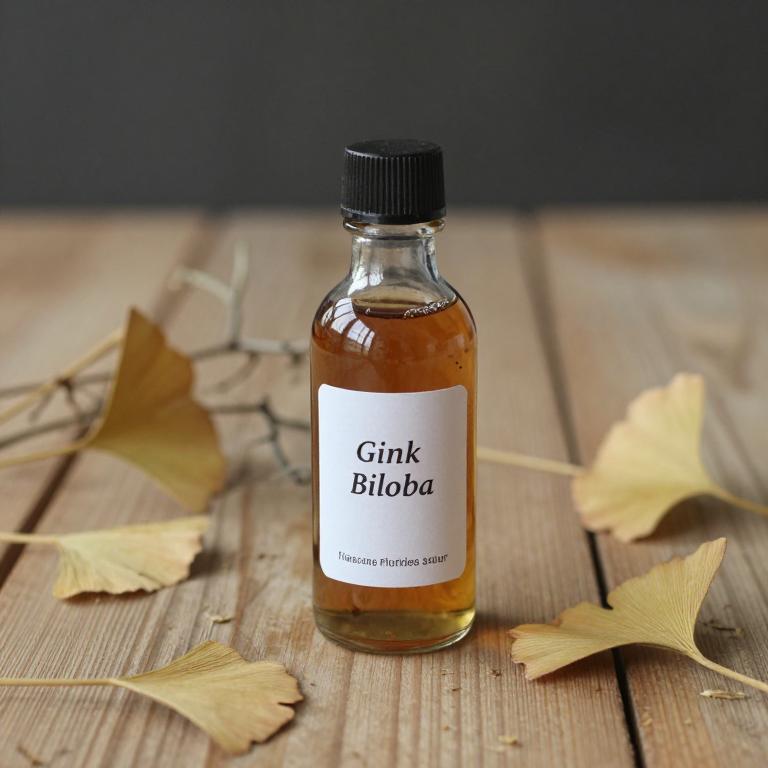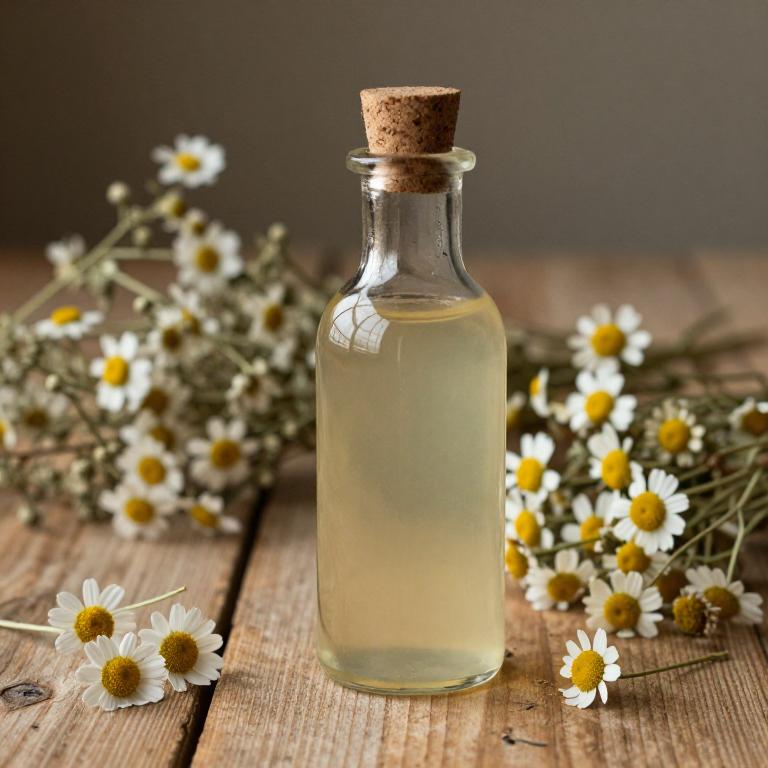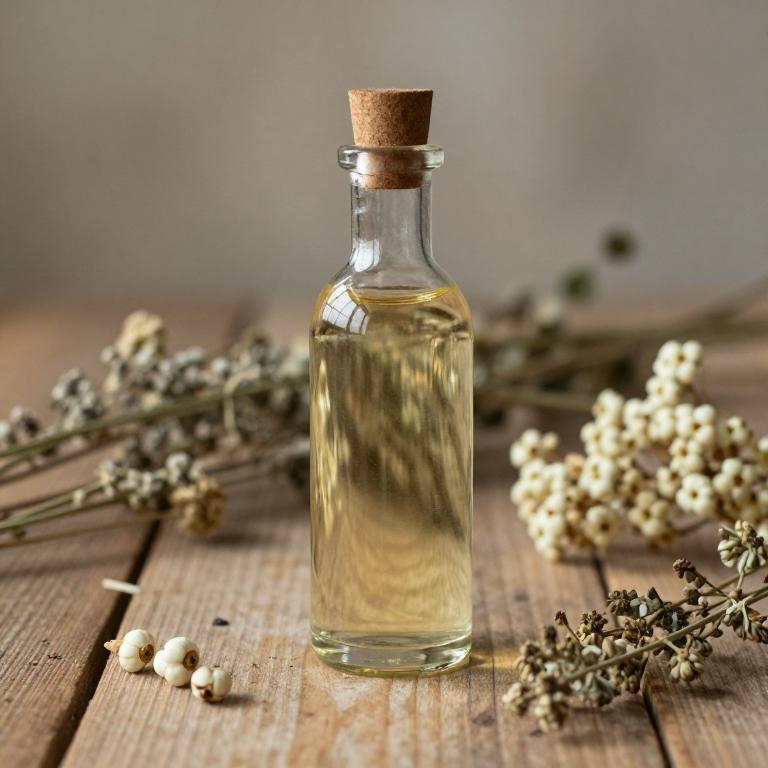10 Best Herbal Syrups For Tinnitus

Herbal syrups for tinnitus are natural remedies that aim to alleviate the symptoms of ringing or buzzing in the ears by incorporating a variety of plant-based ingredients known for their soothing and anti-inflammatory properties.
Common herbs used in these syrups include ginger, ginkgo biloba, garlic, and licorice root, each of which is believed to support ear health and improve blood circulation. These syrups are often preferred by individuals seeking alternative or complementary treatments to conventional medications, as they may offer a gentler approach with fewer side effects. However, it is important to consult with a healthcare professional before using herbal syrups, as they can interact with other medications or may not be suitable for everyone.
While some people report relief from tinnitus symptoms using these syrups, scientific evidence supporting their effectiveness remains limited, and they should not replace medical advice or treatment.
Table of Contents
- 1. Ginkgo (Ginkgo biloba)
- 2. St. john's wort (Hypericum perforatum)
- 3. Chaste tree (Vitex agnus-castus)
- 4. Salvia (Salvia officinalis)
- 5. Rosemary (Rosmarinus officinalis)
- 6. Echinacea (Echinacea purpurea)
- 7. Yarrow (Achillea millefolium)
- 8. Stinging nettle (Urtica dioica)
- 9. German chamomile (Chamomilla recutita)
- 10. Valerian (Valeriana officinalis)
1. Ginkgo (Ginkgo biloba)

Ginkgo biloba herbal syrups are commonly used as a natural remedy for tinnitus due to their potential to improve blood circulation and reduce oxidative stress in the inner ear.
These syrups contain extracts from the leaves of the ginkgo tree, which are rich in flavonoids and terpenoids known for their antioxidant and anti-inflammatory properties. Proponents of ginkgo biloba syrups suggest that they may help alleviate the symptoms of tinnitus by enhancing auditory blood flow and protecting nerve cells from damage. However, while some studies show promising results, more clinical research is needed to confirm its efficacy and safety for tinnitus treatment.
As with any herbal supplement, it is advisable to consult a healthcare professional before use, especially for individuals with existing health conditions or those taking other medications.
2. St. john's wort (Hypericum perforatum)

Hypericum perforatum, commonly known as St. John's Wort, is a herbal remedy that has been traditionally used for its potential benefits in supporting mental health and reducing inflammation.
While it is well-known for its antidepressant properties, some studies suggest that it may also have a positive impact on tinnitus, a condition characterized by persistent ringing or buzzing in the ears. Herbal syrups containing Hypericum perforatum are often used as a natural alternative to conventional treatments, offering a gentler approach with fewer side effects. These syrups may help reduce the intensity of tinnitus symptoms by improving blood flow and reducing oxidative stress in the auditory system.
However, it is important to consult with a healthcare professional before using Hypericum perforatum, as it can interact with certain medications and may not be suitable for everyone.
3. Chaste tree (Vitex agnus-castus)

Vitex agnus-castus, commonly known as chasteberry, has been traditionally used in herbal medicine for its potential to support hormonal balance and alleviate symptoms associated with conditions like tinnitus.
While scientific research on its direct effects on tinnitus is limited, some studies suggest that its adaptogenic properties may help reduce stress and anxiety, which are known contributors to tinnitus symptoms. Herbal syrups made from vitex agnus-castus are often used as a complementary therapy to support overall ear health and manage chronic tinnitus. These syrups are typically taken in small doses, and it is important to consult with a healthcare provider before starting any herbal treatment, especially for those with pre-existing medical conditions or taking other medications.
Despite its traditional use, more clinical trials are needed to fully understand the efficacy and safety of vitex agnus-castus in treating tinnitus.
4. Salvia (Salvia officinalis)

Salvia officinalis, commonly known as sage, has been traditionally used in herbal medicine for its potential health benefits, including its use in herbal syrups for tinnitus.
These syrups often combine sage with other herbs like ginger or peppermint to enhance their therapeutic properties. The anti-inflammatory and antioxidant compounds in sage may help reduce inner ear inflammation and improve blood circulation, which are believed to contribute to tinnitus relief. While scientific evidence is still limited, many users report a reduction in tinnitus symptoms after using sage-based syrups.
As with any herbal remedy, it is important to consult a healthcare professional before use, especially for individuals with pre-existing conditions or those taking other medications.
5. Rosemary (Rosmarinus officinalis)

Rosmarinus officinalis, commonly known as rosemary, has been traditionally used in herbal syrups for its potential benefits in alleviating tinnitus symptoms.
The essential oils found in rosemary, such as 1,8-cineole and camphor, are believed to have anti-inflammatory and vasodilatory properties that may help improve blood circulation in the inner ear. These herbal syrups are often prepared by infusing rosemary leaves in a base of honey or glycerin, making them easy to consume and absorb. While scientific research on rosemary's efficacy for tinnitus is limited, many users report a reduction in ringing or buzzing sounds after regular use.
As a complementary therapy, rosemary herbal syrups may support overall ear health when used alongside conventional treatments under medical guidance.
6. Echinacea (Echinacea purpurea)

Echinacea purpurea, commonly known as purple coneflower, has been traditionally used for its immune-boosting properties, but recent studies suggest it may also offer benefits for tinnitus management.
Herbal syrups made from Echinacea purpurea are often used as a natural remedy to reduce the perception of ringing or buzzing in the ears, though scientific evidence supporting its efficacy for tinnitus is still limited. These syrups typically contain extracts of the plant's roots and flowers, which are believed to have anti-inflammatory and antioxidant properties that may help alleviate inner ear inflammation. While some individuals report relief from tinnitus symptoms after using Echinacea-based syrups, it is important to consult with a healthcare provider before starting any new herbal treatment, especially for chronic conditions.
As with any supplement, the quality and potency of Echinacea purpurea syrups can vary, so choosing a reputable brand is essential for safety and effectiveness.
7. Yarrow (Achillea millefolium)

Achillea millefolium, commonly known as yarrow, has been traditionally used in herbal medicine for its potential health benefits, including its possible role in alleviating tinnitus.
While scientific research on its effectiveness for tinnitus is limited, some studies suggest that its anti-inflammatory and antioxidant properties may help reduce inner ear inflammation and oxidative stress, which are often associated with tinnitus. Herbal syrups made from Achillea millefolium are sometimes used as a natural remedy to support ear health and improve circulation, which may indirectly help in managing tinnitus symptoms. These syrups are typically prepared by combining the dried herb with honey or other natural sweeteners, making them palatable and easy to consume.
However, individuals experiencing tinnitus should consult with a healthcare professional before using any herbal remedies, as they may interact with other medications or have side effects.
8. Stinging nettle (Urtica dioica)

Urtica dioica, commonly known as stinging nettle, has been traditionally used in herbal medicine for its potential health benefits, and some formulations include it in syrups aimed at alleviating tinnitus.
These herbal syrups are often marketed as natural remedies to reduce the perception of ringing or buzzing in the ears, though scientific evidence supporting their efficacy for tinnitus is limited. The active compounds in stinging nettle, such as flavonoids and antioxidants, may help reduce inflammation and improve circulation, which could theoretically support ear health. However, it is important to consult a healthcare professional before using such syrups, as they may interact with other medications or have side effects.
While some individuals report subjective relief from tinnitus using these syrups, more rigorous clinical studies are needed to confirm their effectiveness.
9. German chamomile (Chamomilla recutita)

Chamomilla recutita, commonly known as German chamomile, has been traditionally used for its calming and anti-inflammatory properties, and recent studies suggest it may offer relief for tinnitus sufferers.
Herbal syrups made from chamomilla recutita are often prepared with honey or other natural sweeteners, making them an appealing option for those seeking natural remedies. These syrups are believed to support ear health by reducing inflammation and promoting relaxation, which may help alleviate the persistent ringing or buzzing associated with tinnitus. While more research is needed, some users report improved symptoms after regular use of chamomilla recutita syrups.
As with any herbal remedy, it is advisable to consult a healthcare professional before incorporating it into a treatment plan for tinnitus.
10. Valerian (Valeriana officinalis)

Valeriana officinalis, commonly known as valerian, is a traditional herbal remedy that has been used for centuries to address various nervous system conditions, including tinnitus.
Valerian root contains compounds such as valerenic acid and essential oils that may help reduce anxiety and promote relaxation, which can indirectly alleviate tinnitus symptoms. Herbal syrups made from valerian are often preferred for their pleasant taste and ease of consumption, making them a popular choice for long-term use. While scientific evidence on valerian's effectiveness for tinnitus is limited, some studies suggest it may help modulate the central nervous system and reduce the perception of ringing in the ears.
As with any herbal remedy, it is important to consult a healthcare professional before using valerian syrup, especially if you are taking other medications or have underlying health conditions.